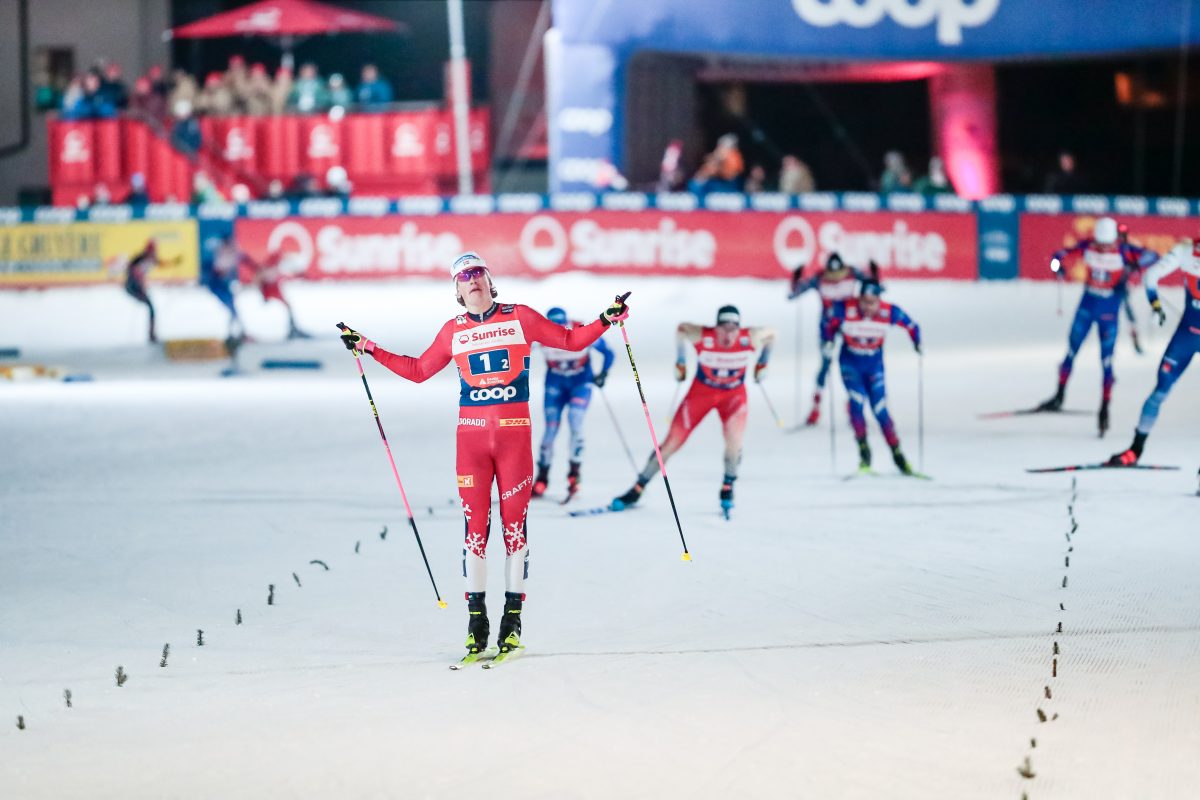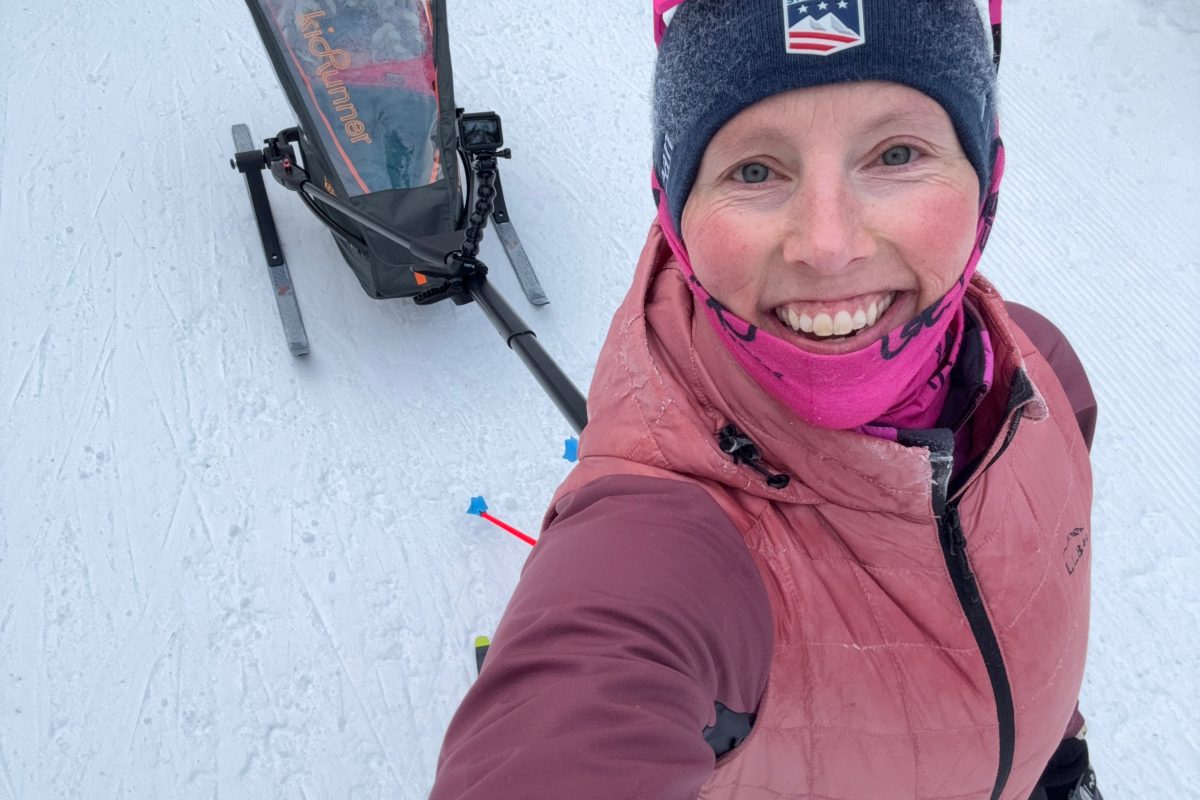
This World Championship coverage is made possible through the generous support of Marty and Kathy Hall and their A Hall Mark of Excellence Award. To learn more about A Hall Mark of Excellence Award or to learn how you can support FasterSkier’s coverage please contact info@fasterskier.com.
It was under overcast skies that the men made their final preparations before the start of Sunday’s mass start 50 k classic, the final event of the 2021 World Championships in Oberstdorf, Germany. They would be skiing eight laps of a 6.25 k loop in temperatures of 40 degrees. With the crack of the starting gun, 57 athletes were underway, with hours of racing ahead of them.
As the championships began to wind down, the sharp end of the race began to wind it up. In the early kilometers the accordion effect from so many bodies jostling with pacing and positions causes a few mishaps, like a fall on the same hill where Heidi Weng, Ebba Andersson, and Frida Karlsson slid yesterday. The first-lap tumble took out Norway’s Simen Hegstad Krüger, Lauri Lepisto of Finland, and Jason Rüesch of Switzerland.

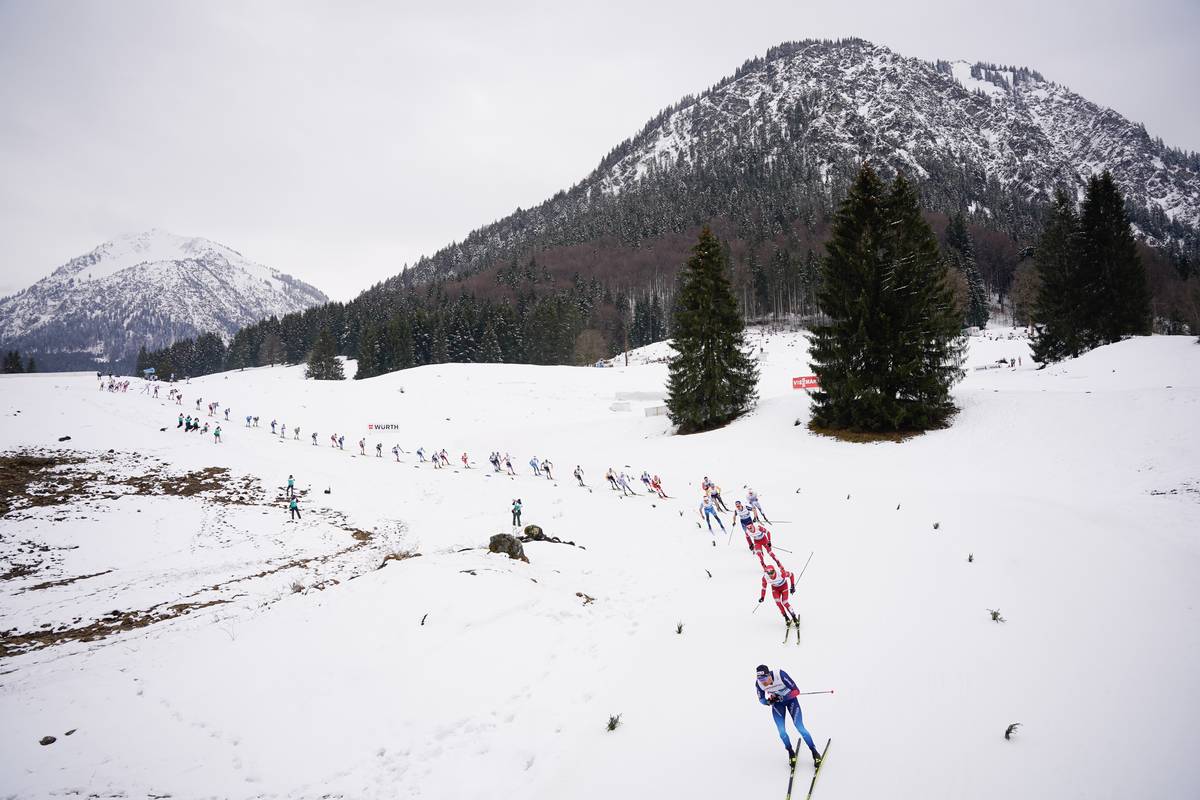
But such small insertions of mayhem are common in what was close-quarter racing. Through 16.5 k, maybe a small grimace from classic crusher Iivo Niskanen upfront revealed a smidge of hurt. Otherwise, 41 skiers came through within 13.2 seconds. The point: this race had yet to blow apart. To keep the accounting tidy, by then Krüger, Lepisto, and Rüesch were all comfortably back in the morass of skiers.
At 20.5 k, Russia’s Alexander Bolshunov, wearing bib 1 and puple-mirrored shades, moved towards the front. As the winner of the last World Cup 50 k, the Holmenkollen 50 k classic last March, this was an apt position for a skier seeking his second career individual championship win. He won the 30k skiathlon in Oberstdorf.
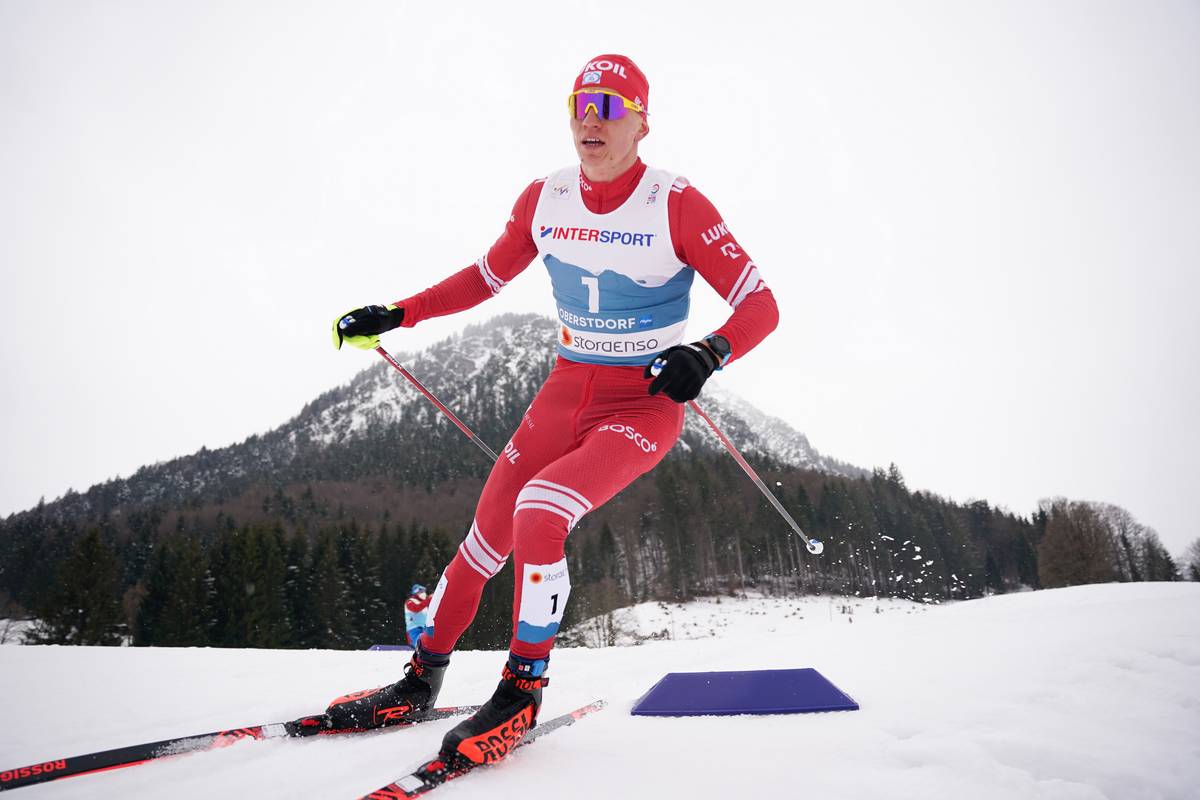
An hour in, Norway’s Hans Christer Holund and Iivo Niskanen shared calm words through the checkpoint – perhaps a nod to when and where the race would become a more earnest affair.
Through the stadium for another hill-climbing lap at 25 k proved to be the point of no return as Bolshunov and Niskanen moved towards the front and some more than mild duress began to break apart the field. The names already mentioned, along with Dario Cologna (SUI), Emil Iversen (NOR), and Johannes Høsflot Klæbo (NOR), skied near the front.
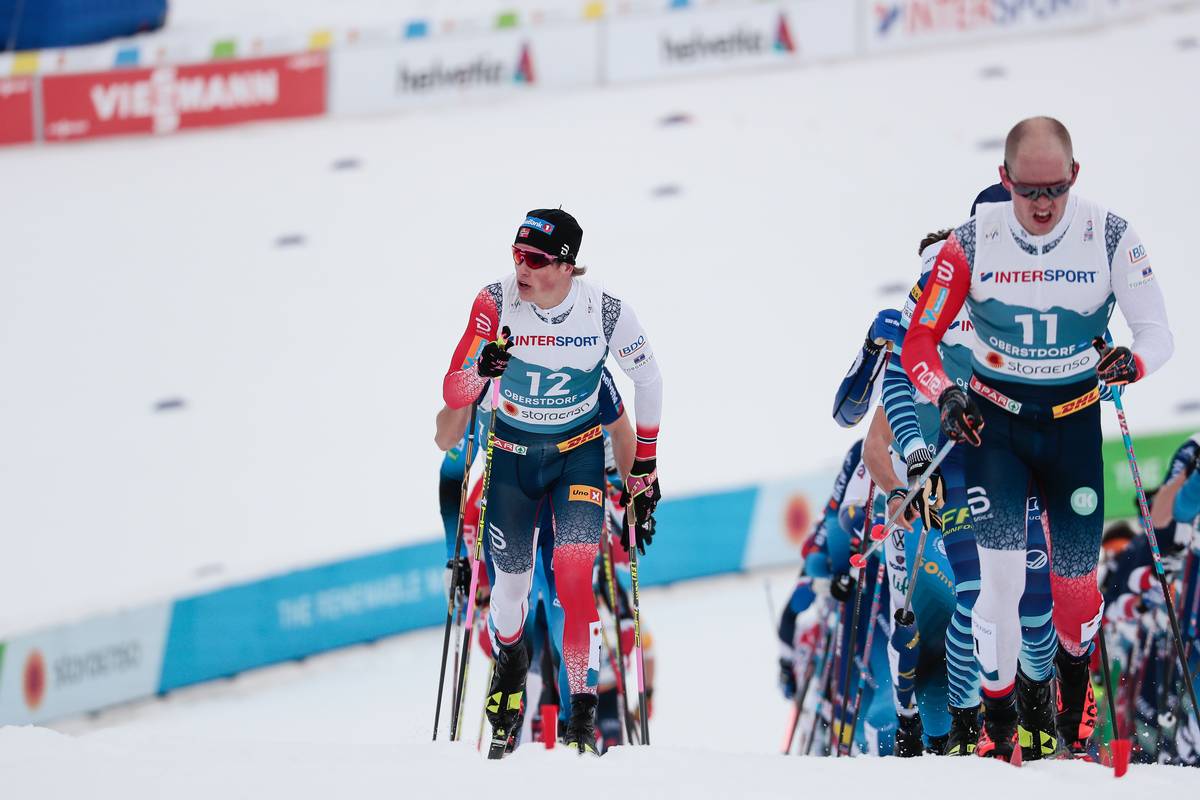
Keeping the accounting straight, the main pack still included 30 skiers, separated by 8.4 seconds at 27.9 k.
By 31 k, counting the skiers up front became markedly easier. Twelve skiers raced through within 10.5 seconds, a distinct pack forming: from Bolshunov in the lead to Ireland’s Thomas Westgård Maloney in 12th. A few kilometers later, skiers latched on to the front pack from behind, including American Scott Patterson and Brit Andrew Musgrave in 15th and 16th. All five of Norway’s skiers were bunched together as were three of Russia’s.
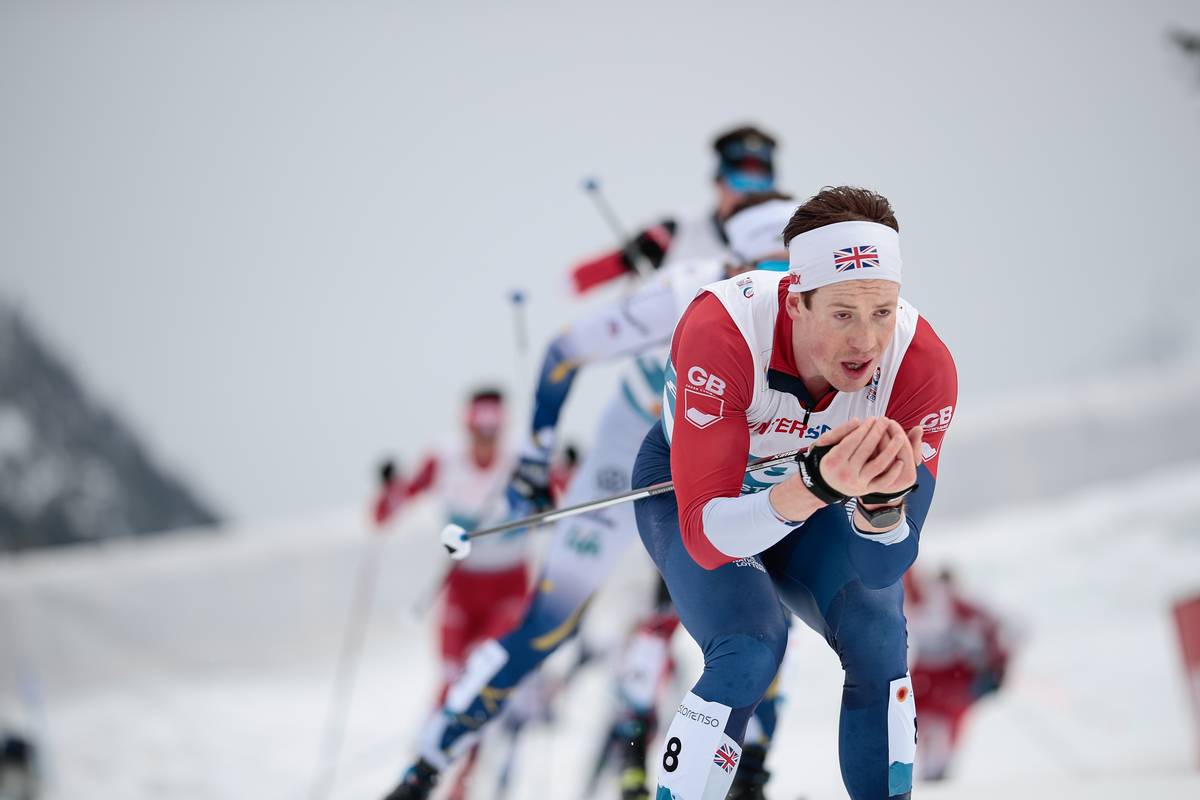

One Finn, Niskanen, pulled the trigger around 35 k. The skier is known to have gone out on solo missions. In 2018, at the Olympics, he rolled away alone late in the race to win gold, with Bolshunov through 18.7 seconds later in second. In close contact on Sunday were Jens Burman and Klæbo, with Musgrave, Goldberg, Iversen, and Scott Patterson within 18.9 seconds. For all practical purposes, this race had busted apart into different pieces scattered across the course.
At 1:48, roughly 40 k into this affair, Iversen snuck a few looks behind here and there and sensed the final chapter was being written. Bolshunov was dangling off the lead group of six skiers that included Iversen, Holund, Klæbo, Burman, Bolshunov, and Niskanen.
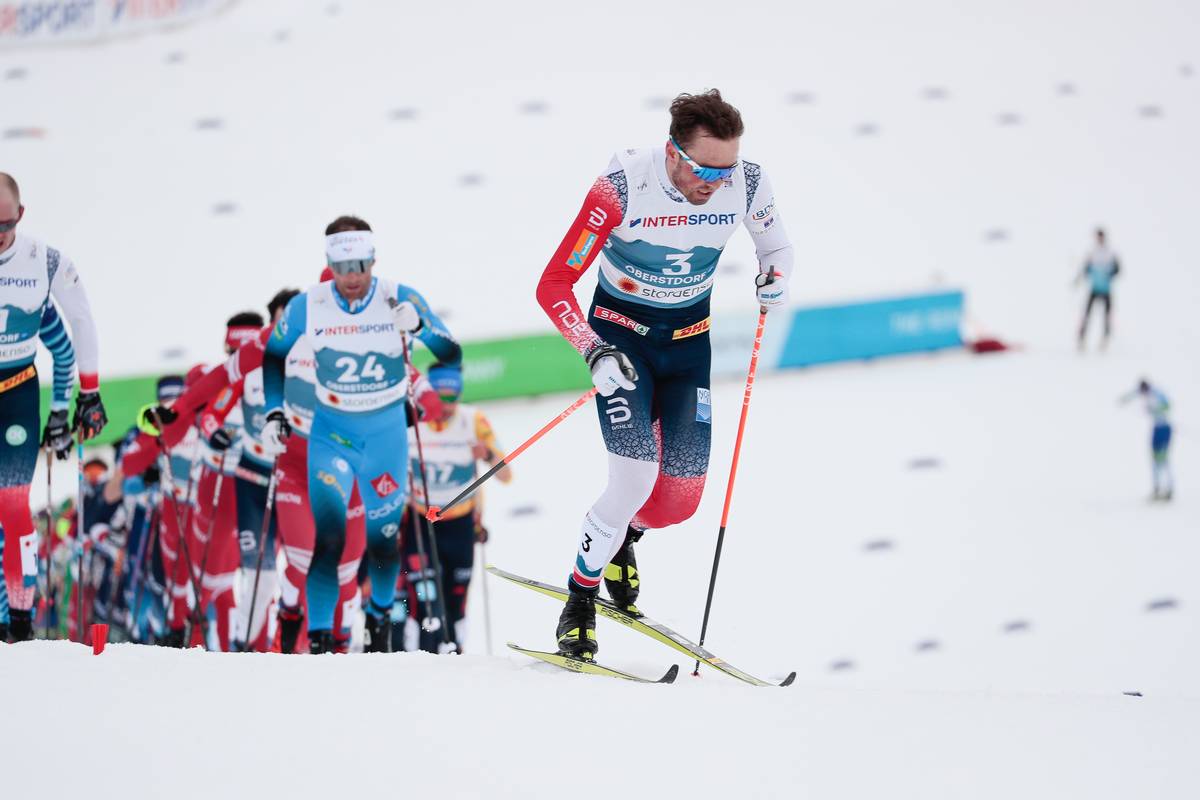
And as if on cue, as the racing became increasingly spicier upfront around the two-hour mark, storm clouds shrouded Oberstdorf’s peaks, and light precipitation began to fall. Working from behind, and connecting to that front group with their own spiciness were Musgrave and Krüger, who closed down a 41-second gap at 43.8 k (1:54:25.4) to connect with the leaders.
Atop the final go-around up the Burgstall climb, notorious at these championships for breaking apart the skate races, four Norwegians (Holund, Iversen, Krüger, and Klæbo) and Bolshunov remained. Coursing through the upper plateau before the descent towards the stadium, Bolshunov upped the tempo, perhaps mindful of his tactical mistakes late in the men’s 4 x 10 k relay when Klæbo out-ran him on the final hill before the finish straight.
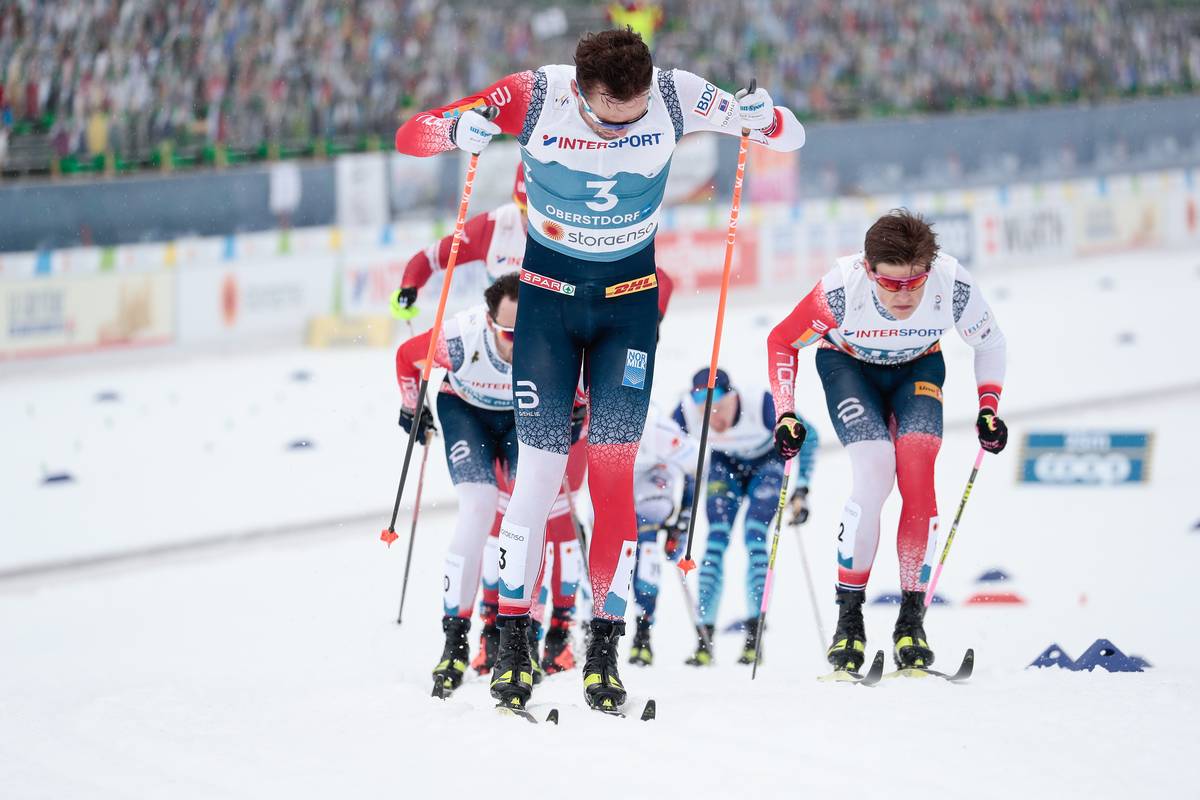
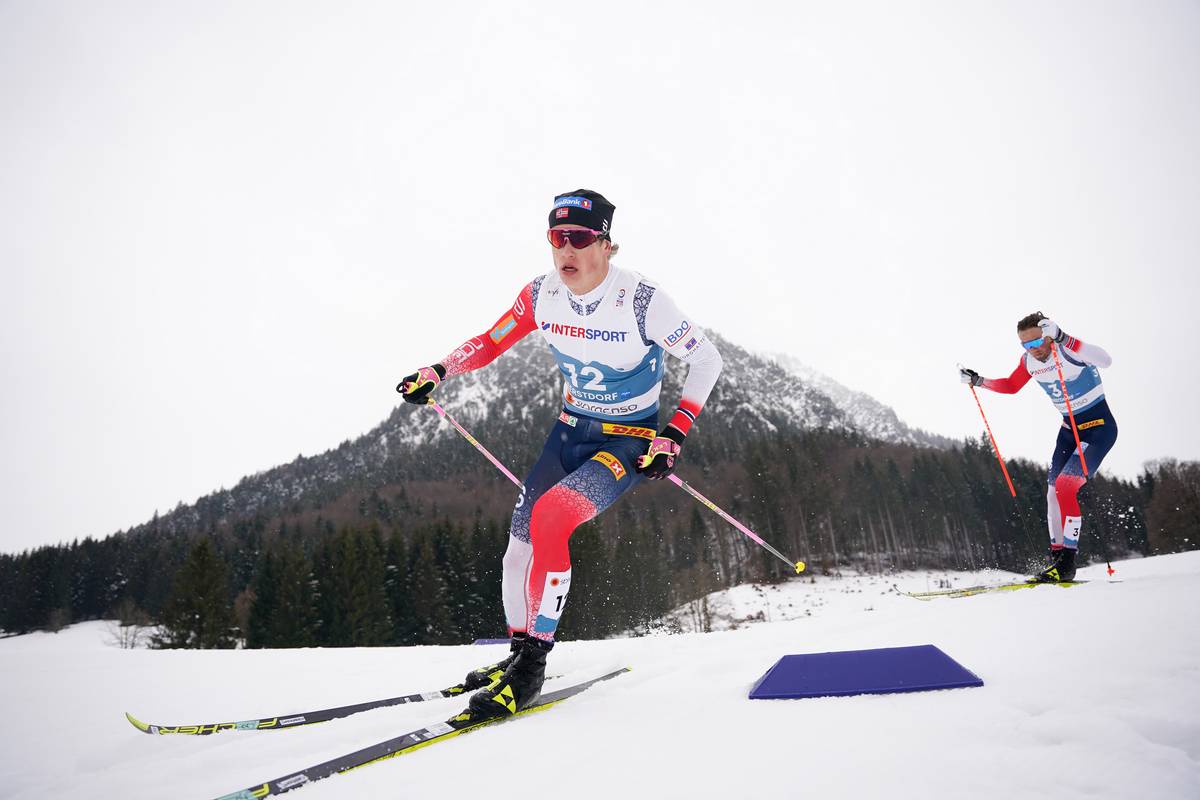
That final hill was again a showdown – yet, Bolshunov led the run with Klæbo on his tails. Iversen scurried slightly behind and was positioned solidly for third.
All hyperbole aside, Klæbo is the game’s best finisher… maybe ever. Klæbo’s dream finish almost wasn’t.
Swooping around the left-hander into the straight, it was Bolshunov in the lead and going wide up against the edge of the right-hand V-boards. (Reminiscent of Lahti where Finland’s Joni Mäki of Finland and Bolshnov nearly tied up near the 4 x 7.5 k relay finish? Maybe. Tune into the post-race podcast.)
No matter how you look at it, pro-Russia, pro-Norway, pro-fun racing, Bolshnov went wide to close the door on Klæbo, and the Norwegian sprinter nearly lost his balance dodging V-boards, ski tips, and Bolshunov’s physical presence. During the brush-up, with no crowd noise, you can hear Bolshunov’s pole crack with the bottom half falling to the ground after he stuck it between his legs.
As Klæbo and Bolshunov re-centered, both now with barely enough room to push the pedals down, the drag race ensued with, as one might guess, Klæbo winning and Bolshunov, with one effective pole, losing ground. It looked like this: Klæbo as the 2021 championship sprint champ and 50 k classic champion in 2:10:52.2. Iversen, for his part, closed in down the straight and passed Bolshunov for second place (+0.7), with the Russian crossing third (+1.4) while slamming his now-dysfunctional pole to the snow.
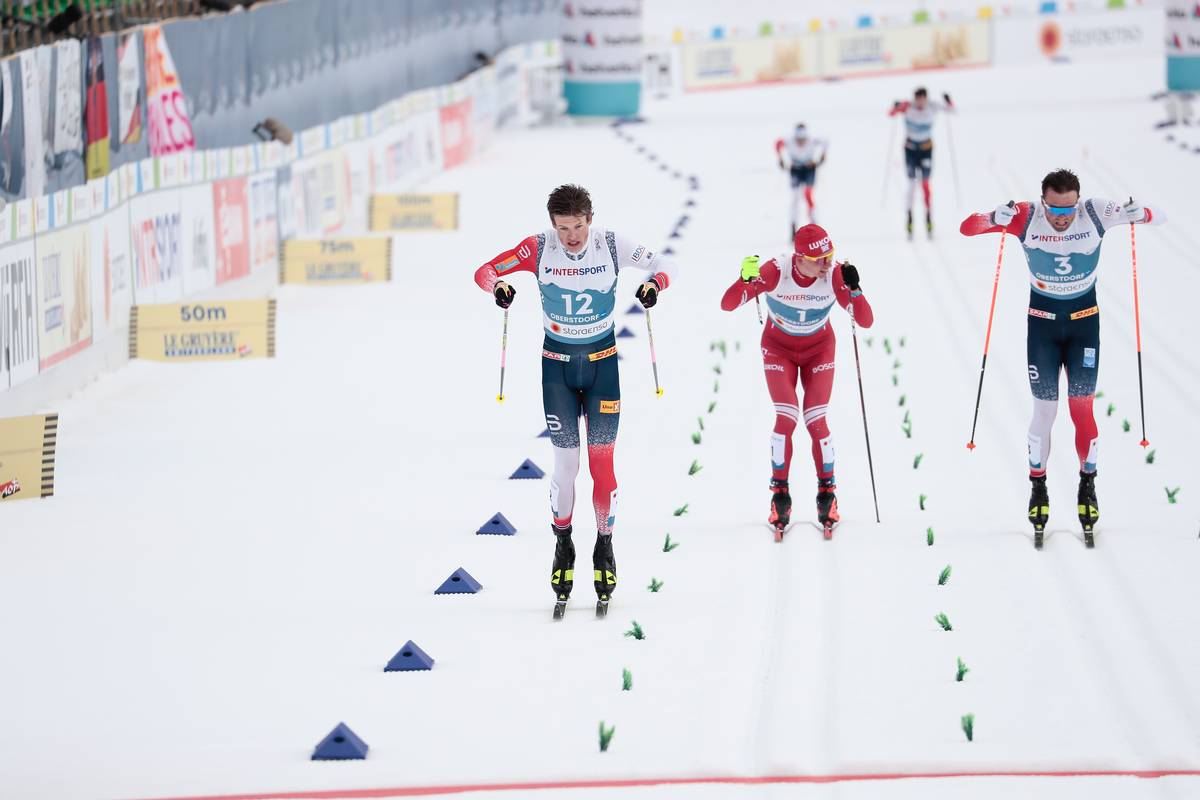
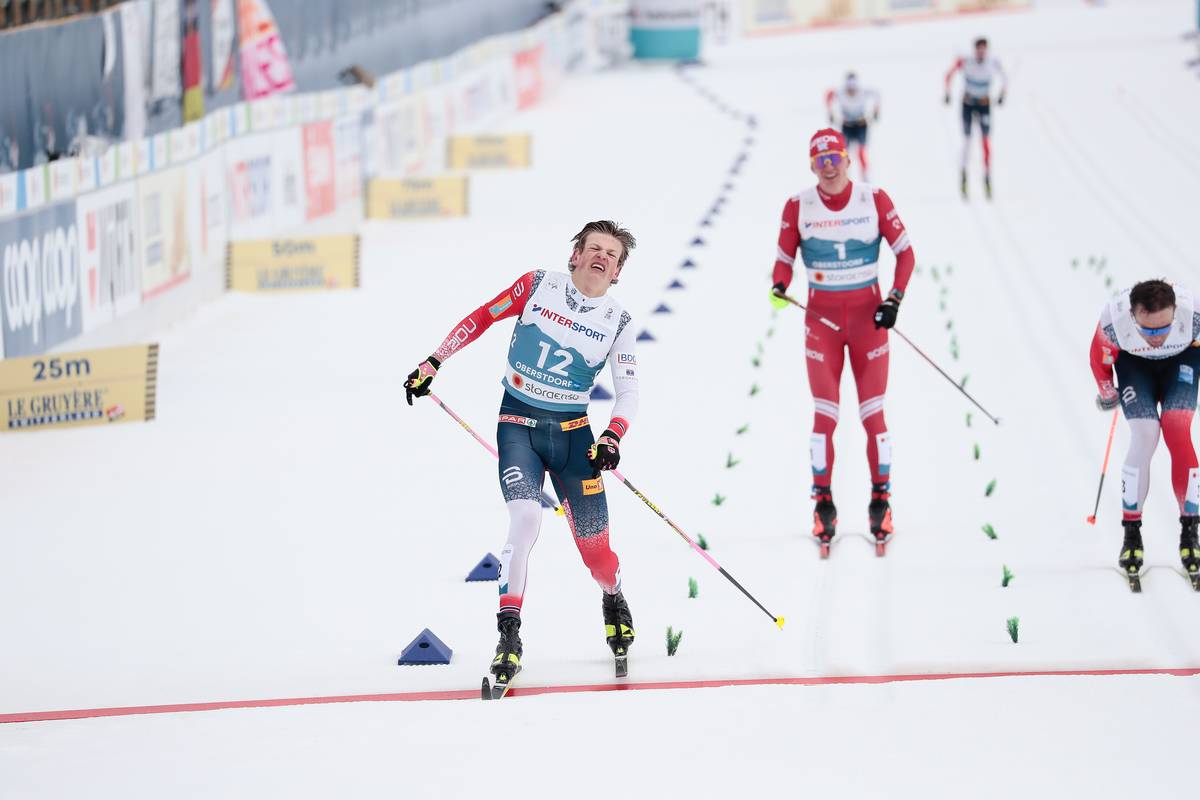

STOP THE PRESS.
In the meantime, still, twenty minutes after the race, the race jury discussed the final moments of the race. In the jury room, on a live feed, were Russia’s Markus Cramer, a longtime head coach, a Norwegian official, and Klæbo arguing his case. Later on, within the post-race compound, Bolshunov, alone and masked, awaited the decisions, as did Klæbo and Iversen.
Thirty minutes later and Klæbo was called back towards the jury room. Rule ICR 343.10 – Disqualified – Obstruction, came into play as Klæbo was disqualified.
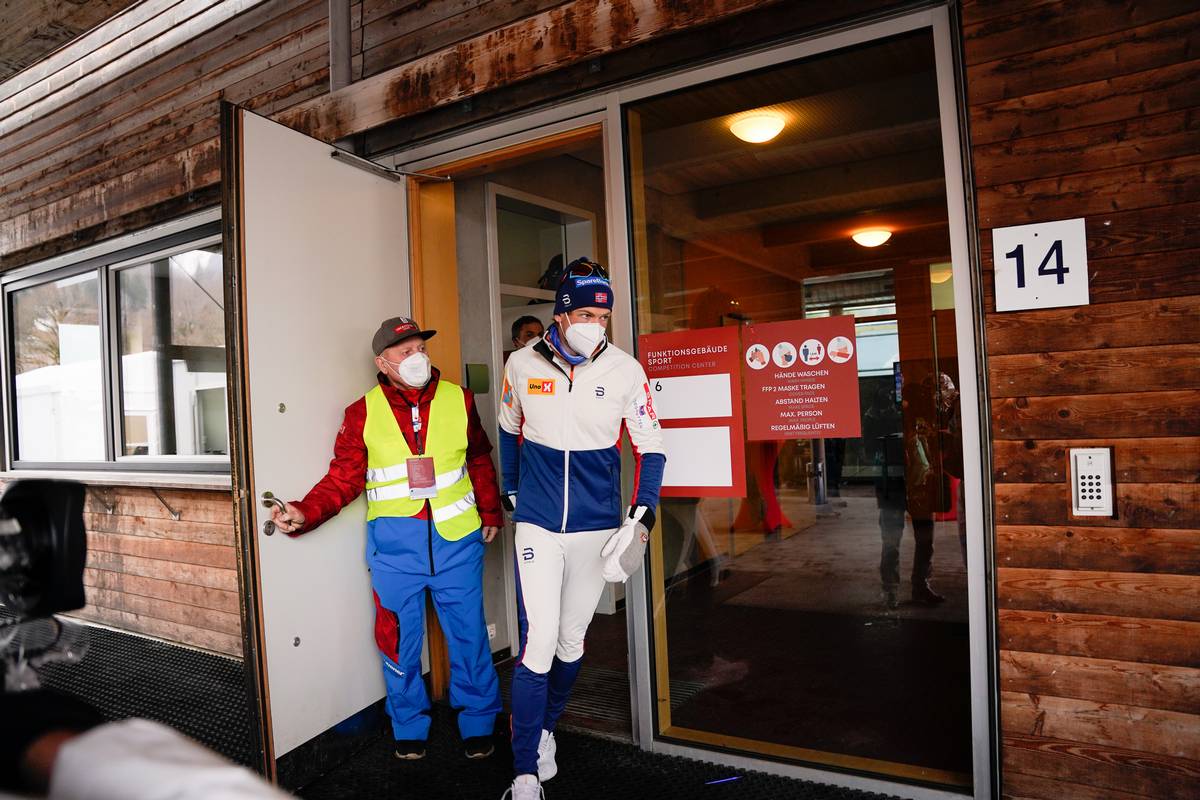
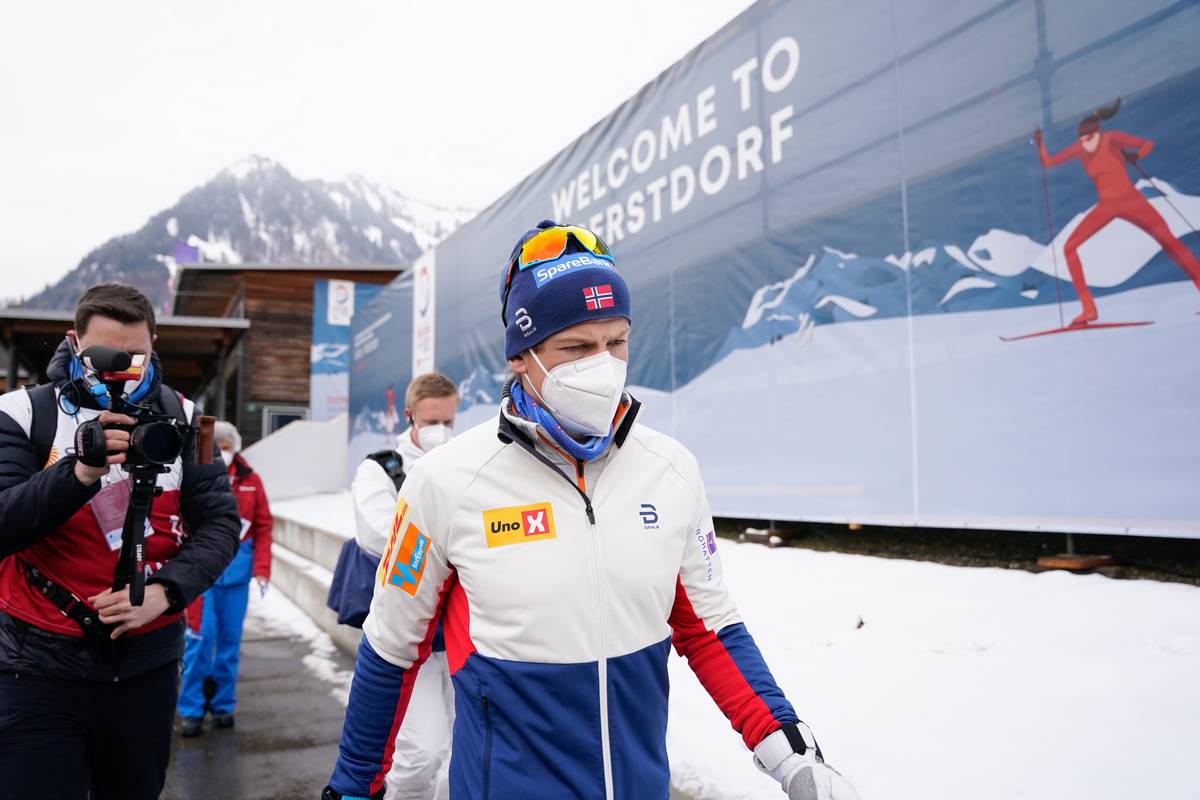
The official podium became Iversen for the win in 2:10:52.9, Bolshunov second (+0.7), and Krüger third (+ 8.2). Norwegian broadcaster NRK is reporting that the Norwegian Ski Federation may file an appeal of the race jury’s decision to disqualify Klæbo; it has 48 hours in which to do so.
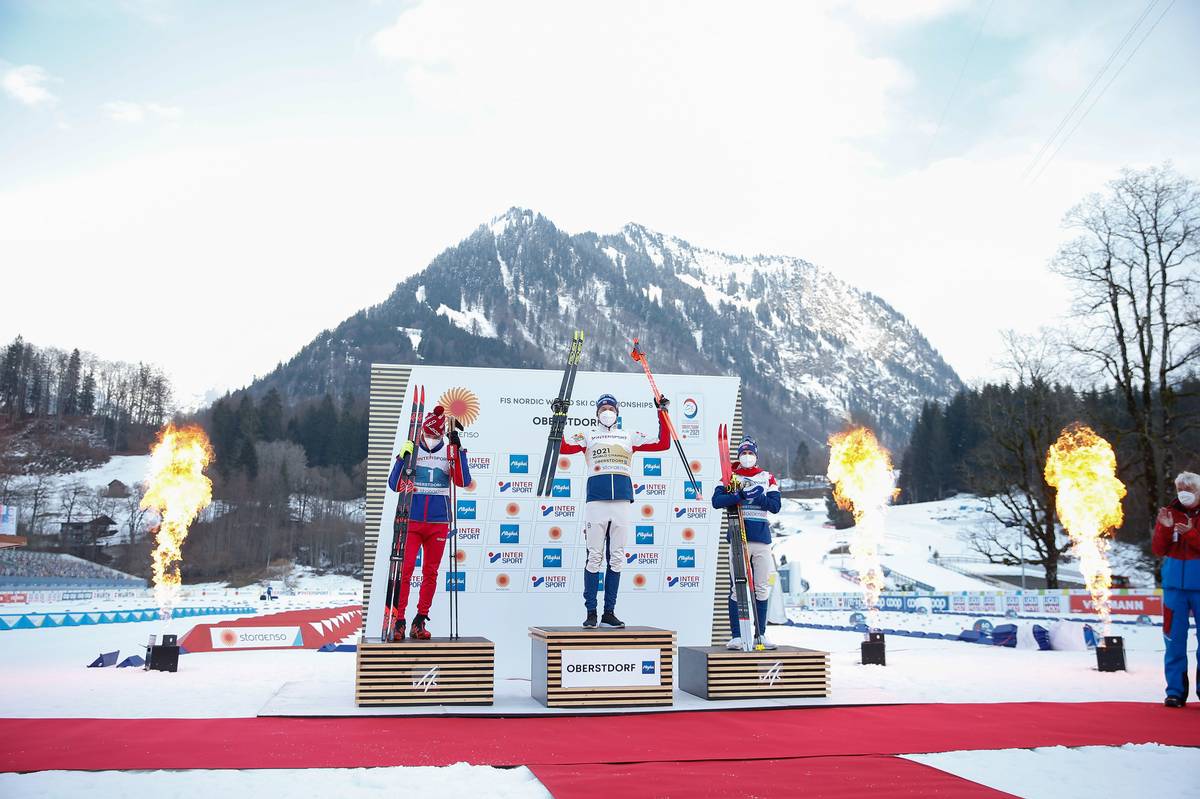
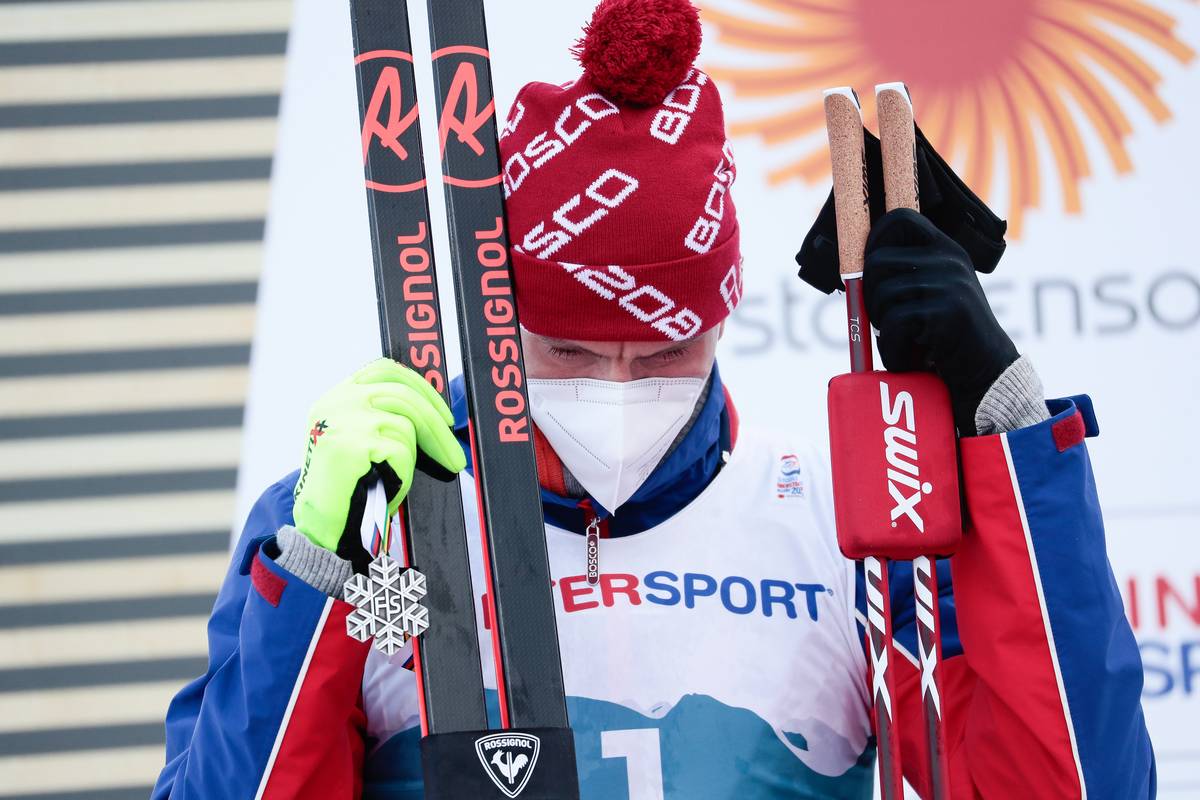
For the Americans, two skiers paced into the top-20. Scott Patterson skied a steady and headstrong race to place 10th (+1:24.7). Patterson skied to 11th in the 2018 Olympic 50 k classic. With dogged skiing and persistently moving up, Patterson’s effort completes a solid championships that saw him place 14th in the skiathlon.
“It was good, it was an interesting race, a lot of the early laps felt pretty chill, a lot of maneuvering around, people skiing on each other and then kind of lap four people accelerated,” Patterson told the U.S. Ski Team (USST) after the race. “Lap five, I went in and changed skis and that really all of a sudden strung us out. I mean I put in a pretty strong surge after that to try and get back on the leaders and paid for it in the end but I’m pretty happy. I wish I could have gotten a few more but I was hurting that last lap, up the big hill. It was a good race, I’m pretty psyched with it.”

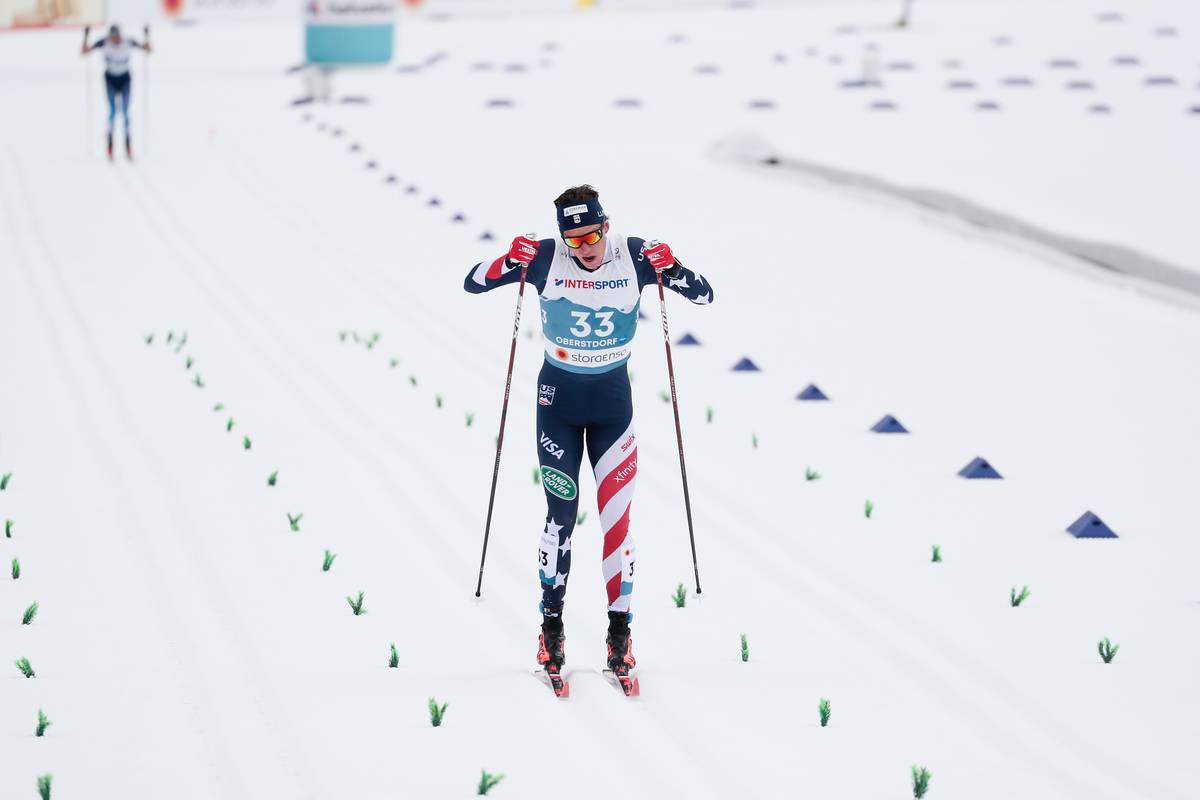
Asked about his thoughts on the week, the Anchorage skier was already looking ahead for more. “I mean overall I was really shooting for a top ten, I was one place off today but I mean I’m fit, I’m feeling pretty good,” Patterson said before the official results were announced and he was bumped up to 10th overall. “ I think I can pull out top-tens and if you’re in the top-ten it’s not that much to get a little further up so I’m looking forward to a few more races for this season and then see what we can do for next year and build into the Olympics.”
David Norris was the next U.S finisher in 16th. Norris, who grew up in Fairbanks but is now based in Anchorage, returned to the racing fold to notch his lifetime best championship result. He placed 17th in last week’s skiathlon, and 20th in the mass start skate at the 2019 Seefeld World Championships.
“It felt good, I’m just a little disappointed that when we transitioned, I lost the lead pack and the slow transition and my skis were sticky for maybe 3 k or so,” said Norris to the USST. “But once they skied in, my second pair was actually quite good. I think I definitely picked off some spots in the last 10 k but that gap was already formed so it’s a little disappointing to know I could have been fighting for a top-ten and instead I got stuck with a top-20 battle.”
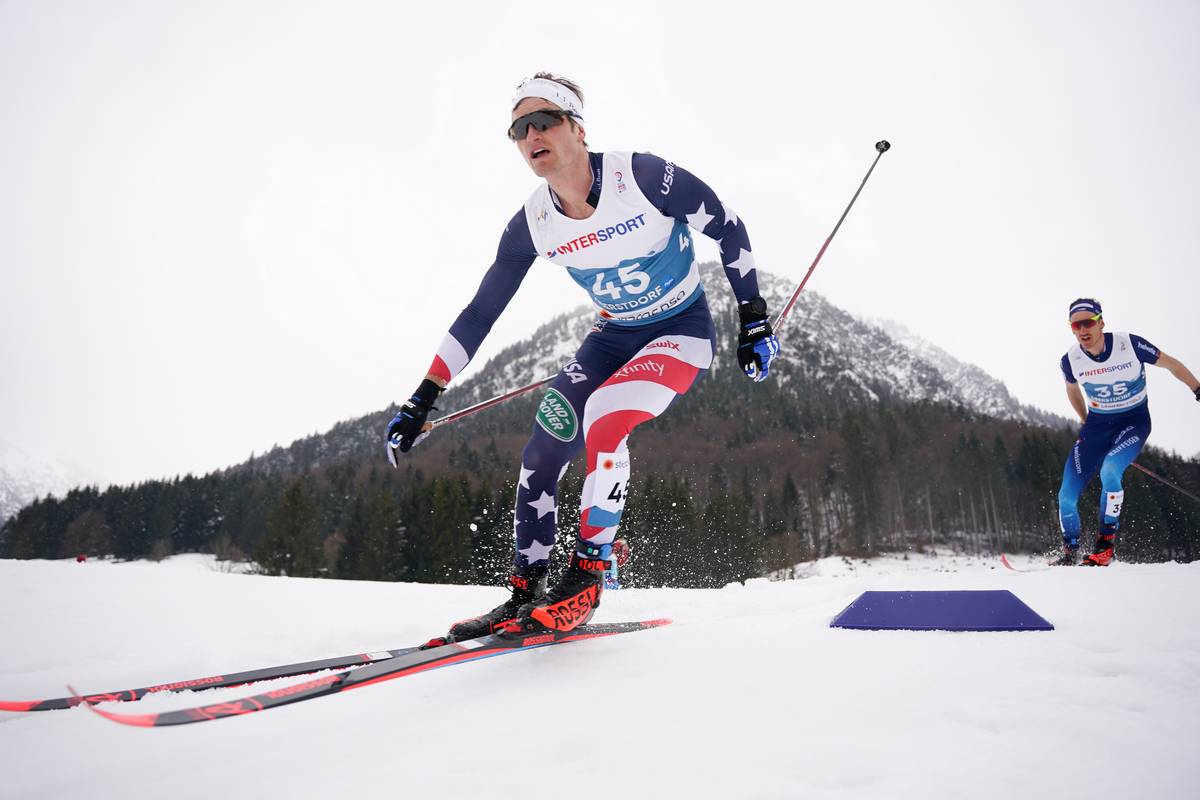
Late last year, Norris recovered from Covid-19 and a modified training and race schedule to ultimately be named to the U.S. championships team.
“Earlier in the year I didn’t think I’d race this winter so I’m grateful to be here and happy that I’m in good shape and yeah I really can’t complain, I just have big goals,” added Norris. “I’ll be hard on myself a little bit but overall I’m stoked.”
Gus Schumacher, in his first senior championship and first ever 50 k at any level, ended his day in 29th. “There were definitely some times when I started to flood a little bit and I was like, ‘oh boy there’s five more laps’,” said Schumacher to the USST. “I had some good guidance in that it’s such a long race you have some ebbs and flows and I finished feeling solid, I mean completed it. I mean I’m glad I made it, fun first 50 k.”
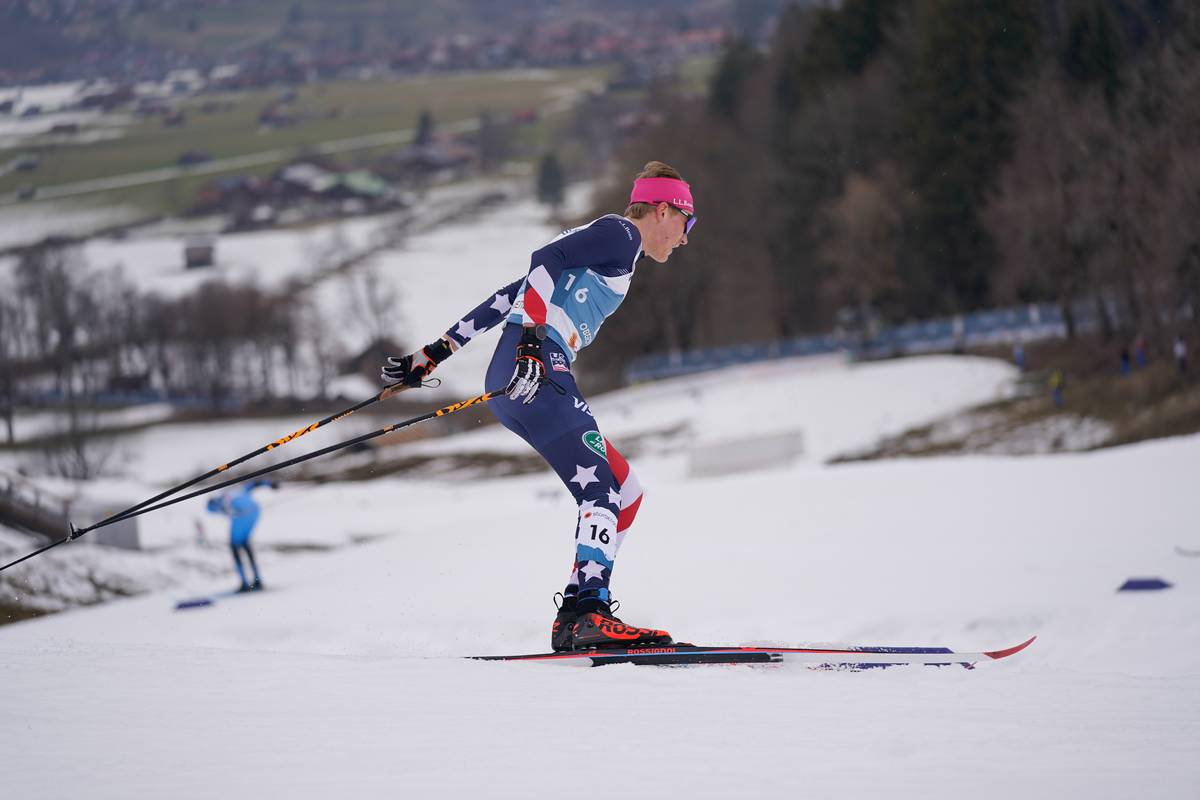
In a race in which the twenty-year-old, also from Anchorage, lost a pole basket at 8 k, he came away from Oberstdorf all the wiser. “This year has been a really big learning year,” said Schumacher to the USST. “A lot of it is patience, a lot of it is just kind of seeing how everyone does it and you know I would have loved to do better this week. But you know, this morning I was happy, I released a little pressure from myself and I came into the day just ready to absorb it and focus on the future and how to be in the top in a year. I mean a lot can happen and I feel good about myself and where I’m at.”
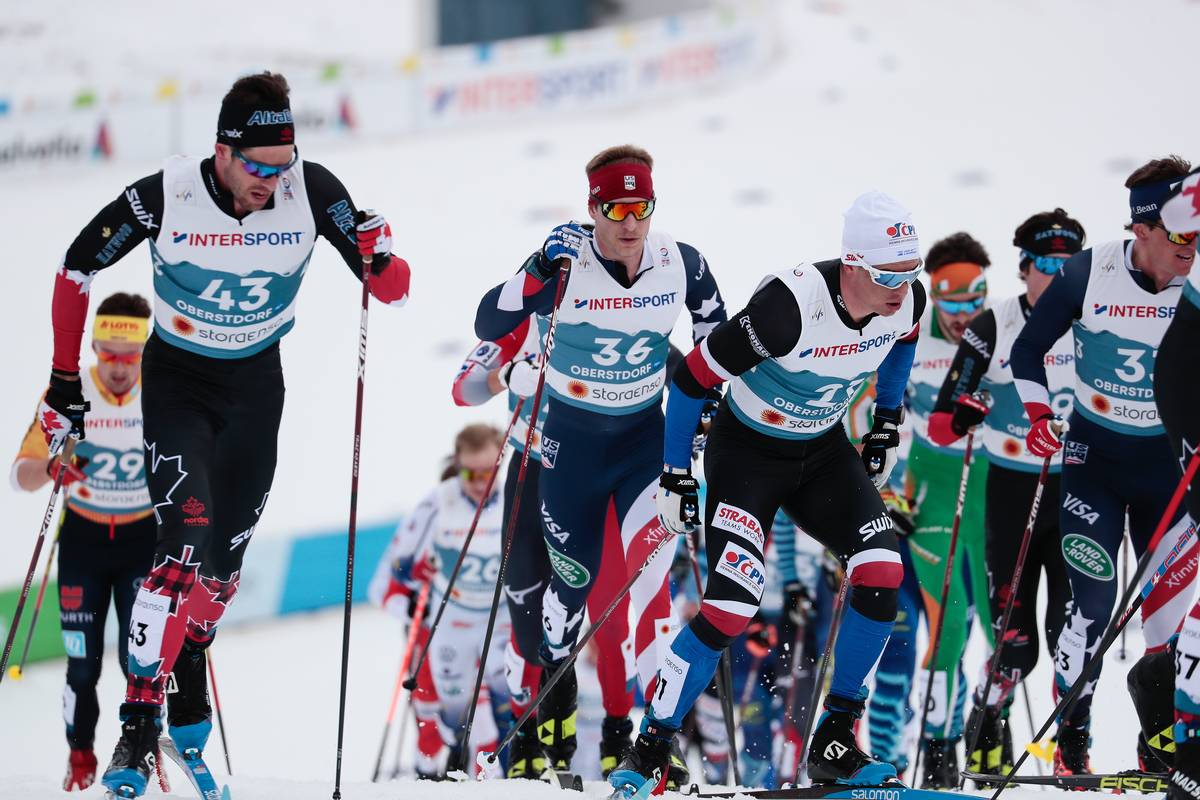
The trio of Canadian skiers also left a mark within or near the top-30. Antoine Cyr (22) was 27th, Russell Kennedy 28th, and Rémi Drolet (20) 31st. Phillippe Boucher began the race but did not finish. Forty-eight skiers finished the race.
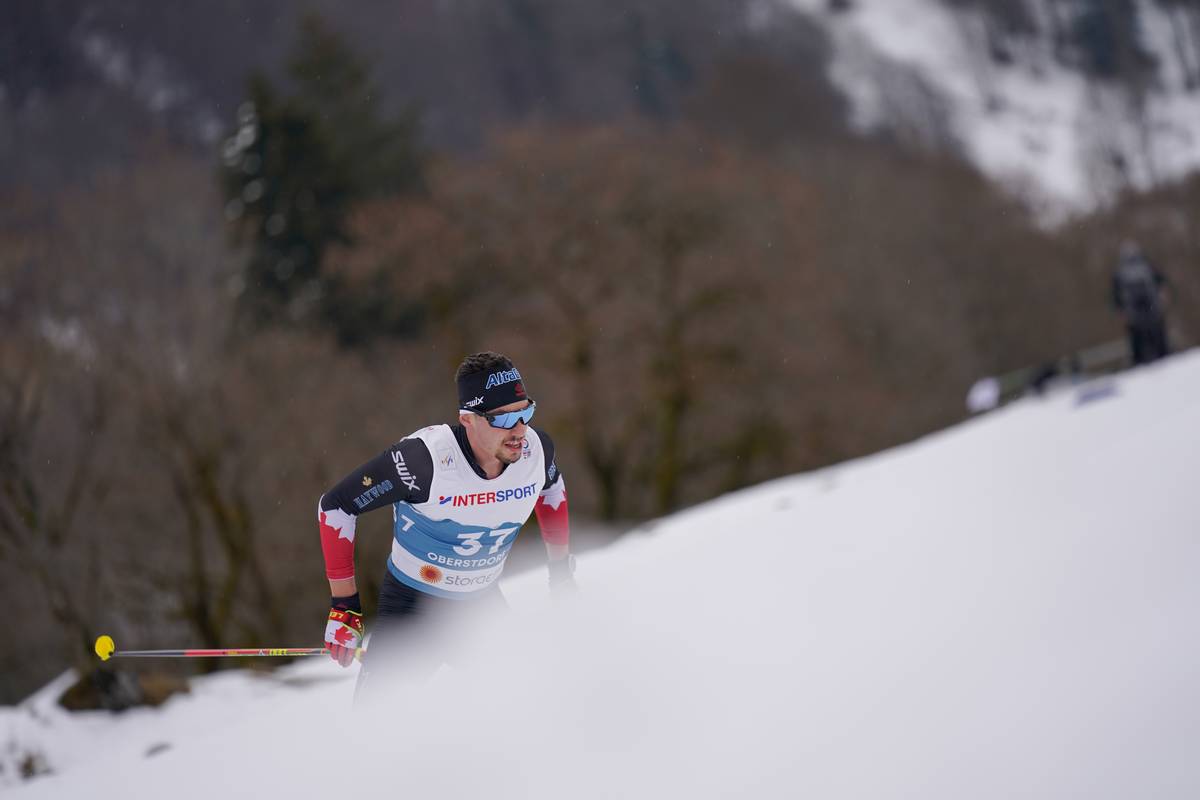
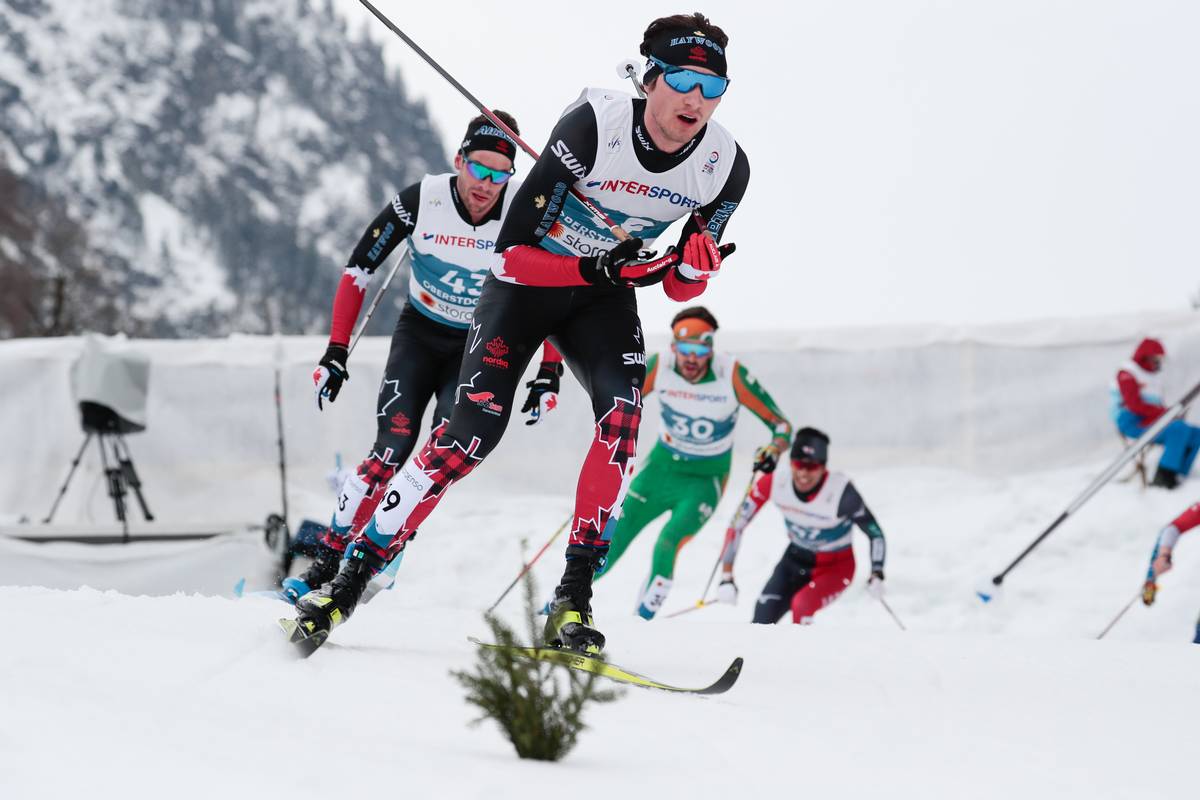
We’ll have more race coverage later on today from The Devon Kershaw Show Podcast with 2017 World Championships 50 k champion Alex Harvey.
Jason Albert
Jason lives in Bend, Ore., and can often be seen chasing his two boys around town. He’s a self-proclaimed audio geek. That all started back in the early 1990s when he convinced a naive public radio editor he should report a story from Alaska’s, Ruth Gorge. Now, Jason’s common companion is his field-recording gear.

